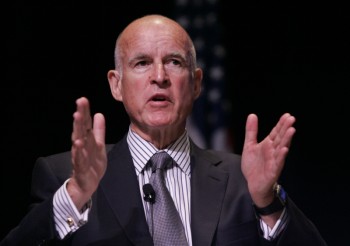
4:23pm | Newly-elected Governor of California Jerry Brown today issued a budget proposal statement to cut $12.5 billion in state spending that includes an 8-10% pay cut for most state employees and $500 million cuts to higher education.
Officials on both sides of party lines have been quick to criticize the plan.
The proposed budget would pass a significant chunk of budgeting power from the state to local counties and cities. It also makes good on last week’s rumors to eliminate local redevelopment agencies and state tax benefits for enterprise zones. The effects of these moves would be extreme in Long Beach, which has a large redevelopment agency and has benefited greatly from enterprise zones that cover 70% of the city.
Brown will also ask voters in a special election to extend several taxes that are set to expire this year, including personal income and sales taxes as well as the Vehicle License Fee rate.
“These cuts will be painful, requiring sacrifice from every sector of the state, but we have no choice,” Brown said. “For 10 years, we’ve had budget gimmicks and tricks that pushed us deep into debt. We must now return California to fiscal responsibility and get our state on the road to economic recovery and job growth.”
The proposal does not issue any further cuts to K-12 education.
“Schools have borne the brunt of spending reductions in recent years, so this budget maintains funding at the same level as the current year,” Brown said.
Andrew York of the Los Angeles Times notes today:
Brown called his proposal “vast and historic,” asking cities and counties to take over administration of fire, corrections, foster care and mental health programs that are currently the charges of state government.
Los Angeles County Supervisor Don Knabe said today in a statement that the state must work with counties and cities to manage finances, not simply pass the responsibility.
“For years LA County has been prudently managing our finances and belt-tightening across all of our departments,” he said.
“Despite these efforts, global economic conditions have us facing our own $310 million shortfall for next year’s budget beginning July 1. The State, therefore, cannot pass on its budget problems to local counties and cities, many of which are facing similar fiscal crises. We must approach these budget challenges by working together across all levels of government and party lines to find long-term solutions to funding the critical programs and services government provides.”

